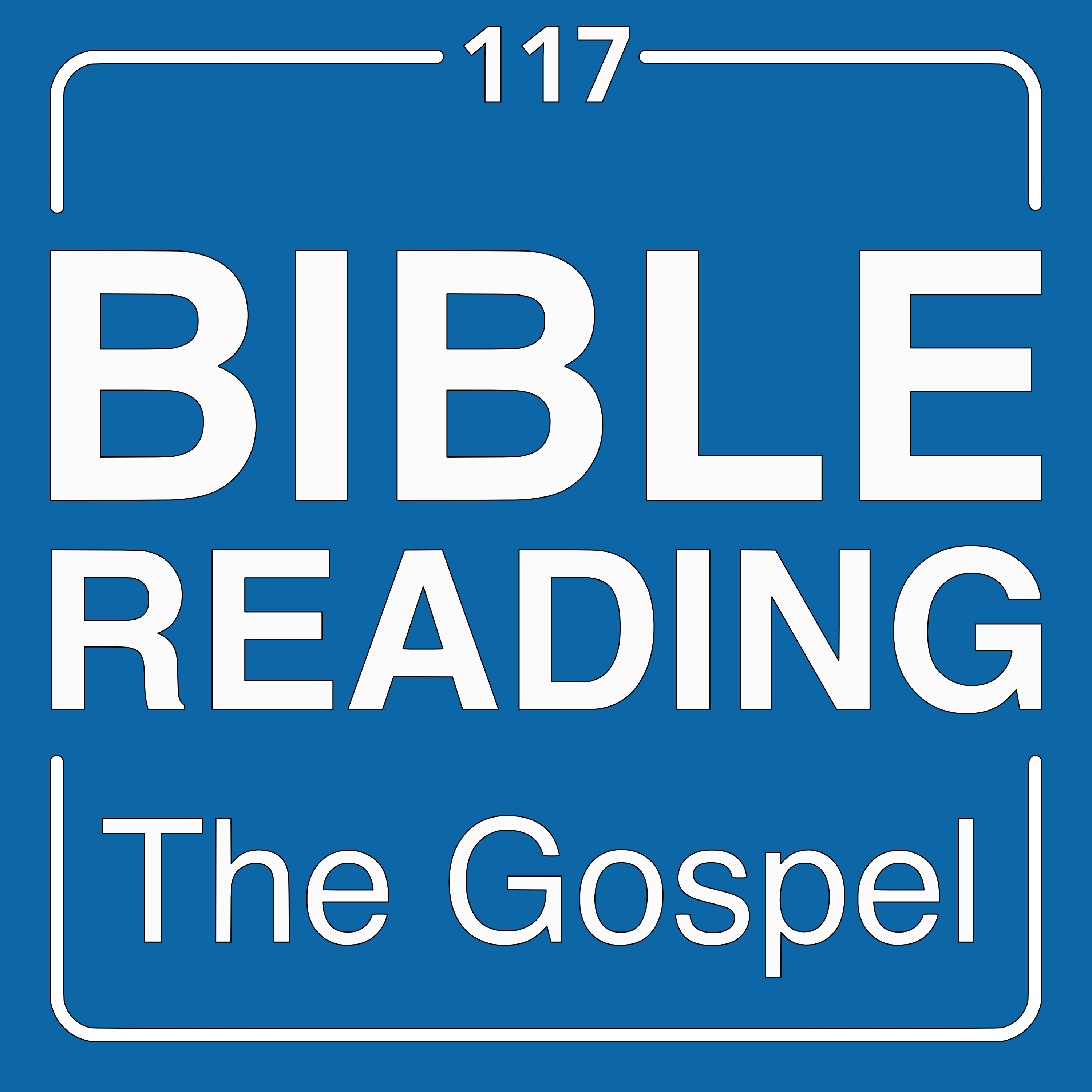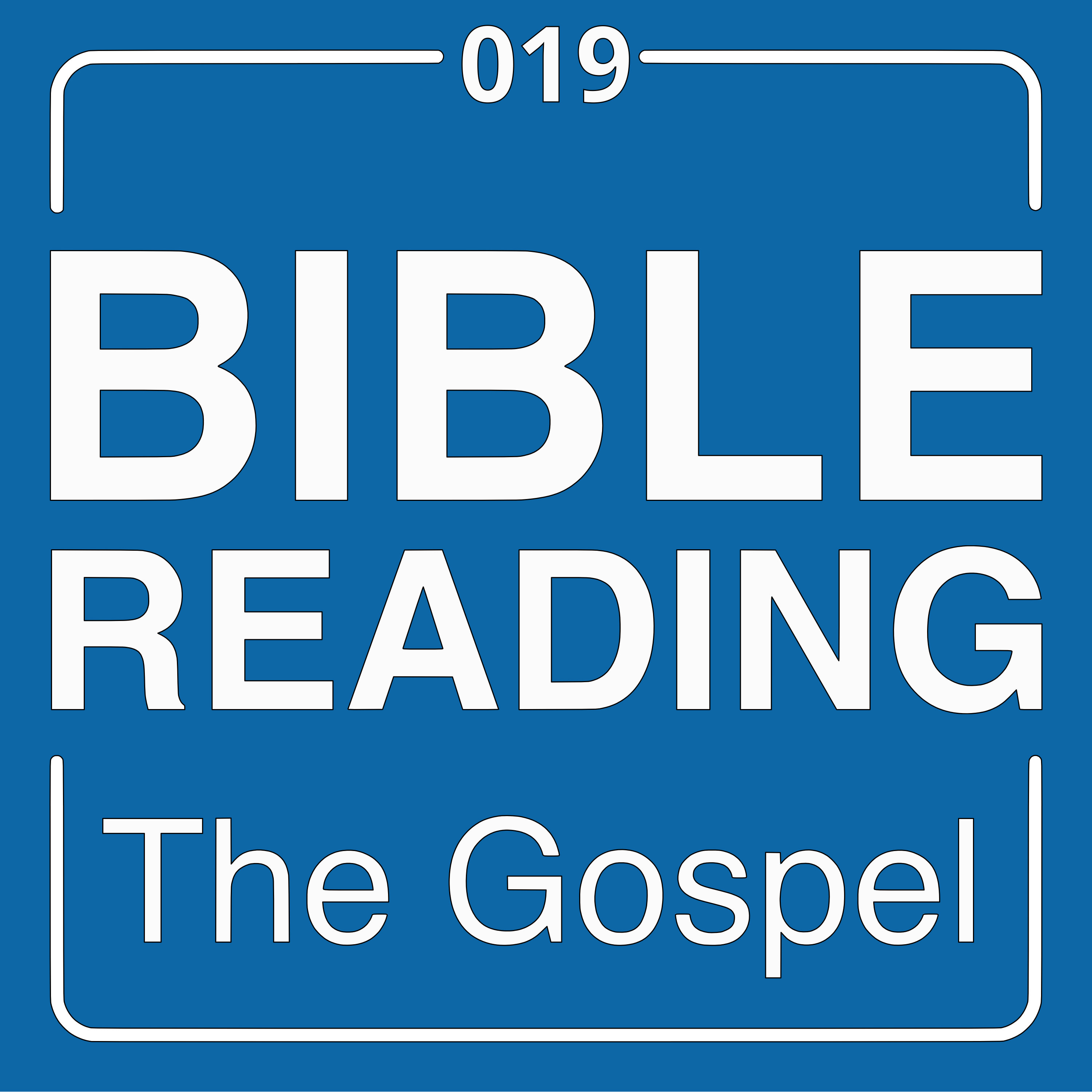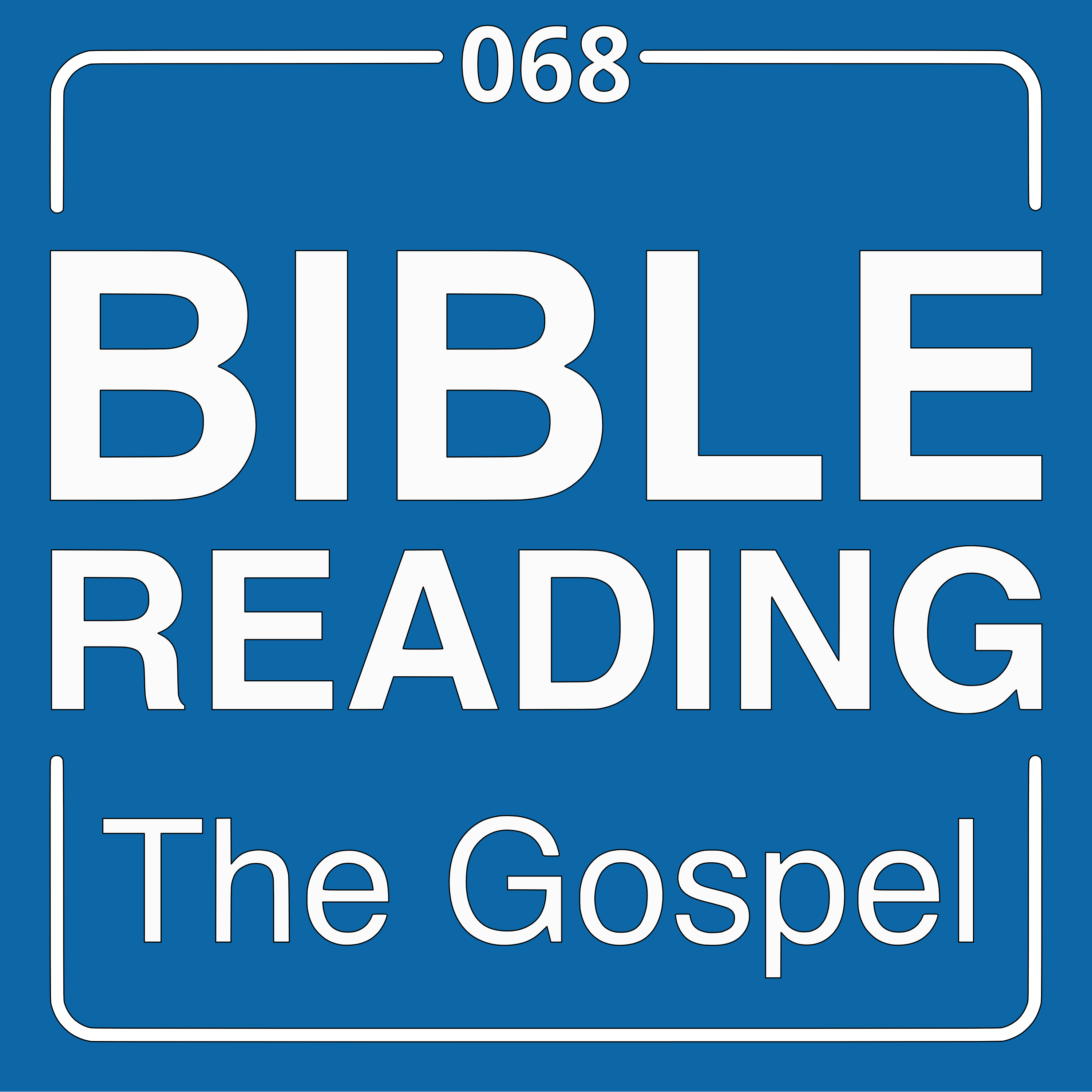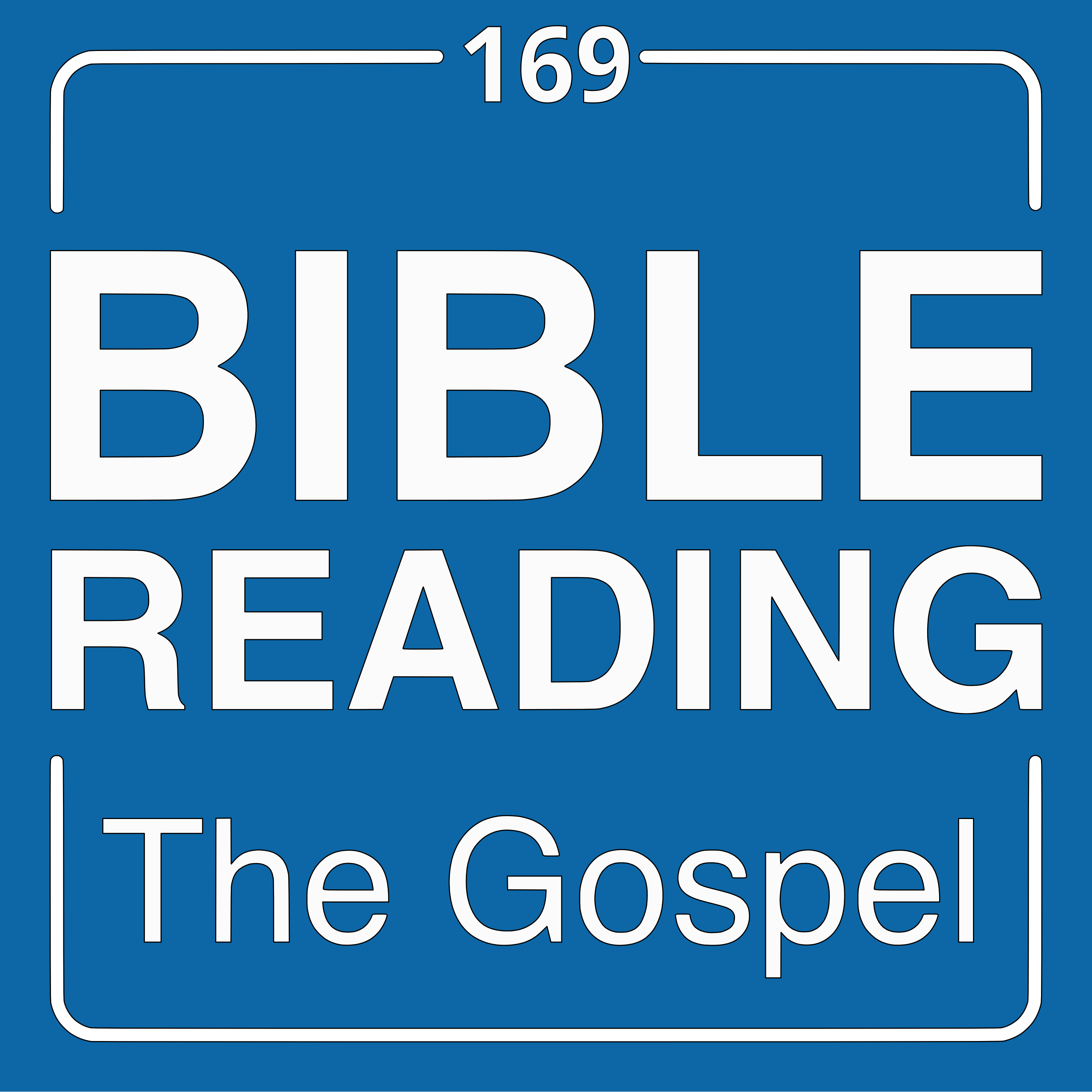Episode Transcript
[00:00:25] Speaker A: And I'm Gabriel.
[00:00:26] Speaker B: And today, on reading the gospel. We are studying the event. Where Jesus has a conversation with some pharisees. About the lament over Jerusalem. This is found in Luke, chapter 13. And we're going to begin in verse 31. And read to the verse 35. Follow along with us.
[00:00:46] Speaker A: At that very hour, some pharisees came and said to Jesus, get away from here, for Herod wants to kill you.
And Jesus said to them, go and tell that fox. Behold, I cast out demons and perform cures. Today and tomorrow. And the third day I finish my course.
Nevertheless, I must go on my way today and tomorrow and the day following. For it cannot be that a prophet should perish away from Jerusalem.
[00:01:21] Speaker B: O Jerusalem. Jerusalem. The city that kills the prophets and stones. Those who are sent to it. How often would I have gathered your children together. As a hen gathers her brood under her wings. And you were not willing. Behold, your house is forsaken. And I tell you, you will not see me until you say. Blessed is he who comes in the name of the Lord.
So this event starts with the pharisees coming to warn Jesus. That Herod wants to kill them.
Don't they want to kill him?
[00:02:00] Speaker A: So this is a little bit strange. Because deep in their hearts, they wanted to kill him. In fact, they made up their minds to kill him. But here they are shrewd. And they said, look, Herod wants to kill you. Get away from here. They want to drive jesus to Jerusalem. Where they had more authority. And would have been easier for them to execute their plans.
[00:02:27] Speaker B: So their desire is to get him down to Jerusalem where they can take care of him. They didn't want Herod to do it for some reason.
[00:02:36] Speaker A: Whatever reason, maybe they didn't trust Herod enough.
[00:02:40] Speaker B: Yeah, they thought Herod might mess it up. So they're telling Jesus to get down there. And Jesus responds with this conversation, this lament over Jerusalem. I guess we could say in verse.
[00:02:58] Speaker A: 32, Jesus said, go and tell that fox. Behold, I cast out demons and perform miracles, healings, today and tomorrow. In the third day, I will finish my work.
In other words, the question that is important for us today.
Is. What can stop us or deter us from fulfilling our mission for Jesus Christ?
Even Herod, who was the tetrarch of Galilee and Periad, a territory where he was there some weeks before being killed in Jerusalem, Jesus Christ said, look, I know my work for today. I know my work for tomorrow and the day after tomorrow. And nothing, and nobody will deter me from fulfilling my mission. What can we learn from this? For us? Today.
[00:03:53] Speaker B: Well, I've got a good example of that in my life. There was a time where I was Bible working, like going out and looking for people who wanted Bible studies and seeing if I could share that with them. And I went into this neighborhood, I knew it was a rough neighborhood. And I'm knocking on doors and seeing if anyone's interested, if anyone would like Bible studies or like a Bible.
And this gang comes up to me and tells me, this is not a safe place for you. You need to get out of here.
I believed I was doing what God had called me to do. And so I told them, well, I'm going to continue on because this is what I'm doing and I'm here because God's called me here. What they ended up doing, they ended up walking down the street with me and they're like, well, we're going to stay here and protect you. And they walked down the street. They didn't come up to the houses, but they just stayed on the street as I went through this neighborhood. And they walked with me through the end and came back down. And when I was done, I said goodbye and they let me go.
I think if we're called to do something, it would have been easy for me to stop and turn away and say, no, I'm done.
But who knows what seeds were planted. I don't remember getting any Bible studies, but I do remember dropping bibles off as I went down that street.
[00:05:20] Speaker A: I see in this passage two potential deterrence. One is external and the Pharisees try know play this card. It is Herod and the other one is internal. Our fears sometimes focusing on our own limitations, realizing how weak we are and how small we are compared with the greatness or the size of the mission that God has entrusted us.
[00:05:53] Speaker B: I think so often we think it's easier to throw money at it. God's not calling me to do this. He's calling the pastor to do this, or he's calling missionaries, let me just give a little bit more money and they can go do it.
Or I'm not trained enough, I need to go get training. And so we end up talking ourselves out of doing the work that God has called us to do.
I think you're exactly right.
[00:06:19] Speaker A: Yeah.
We are not called to outsource the mission that God has given us or to pay for a professional minister. Something little was entrusted to everyone. Each one of us has a gift received from the Holy Spirit and each one of us is responsible to use the gifts that we received.
[00:06:42] Speaker B: And every single know the Bible talks about this later, that we're like a body of Christ. Every single person has a specific part. And if you're not doing your part, other people can't fill that role the way you can. Exactly. It's like hobling along without legs.
You're able to do it. You're able to live and survive, but you're not going to do it as well as if you had working legs.
[00:07:11] Speaker A: Something else I learned from this event, it is the pressure from the outside and the fear from the inside can easily be overcome if you know the way forward.
And for Jesus Christ, he knew the prophecies about himself from the Old Testament. He knew that Messiah would be killed in Jerusalem, and he felt it is to continue his work there. In the same way, if we understand God's plan for us, if we understand the Bible prophecy for the last days, if we follow the examples or the patterns of ministry as designed by Jesus Christ and the holy apostles, that will limit the potential pressure from the outside or the fears from the inside which will try to deter us from fulfilling our mission.
[00:08:10] Speaker B: Yeah. So verse 34 down it talks about how Jerusalem kills and stones the prophets and those who are sent to it, and how God desired to have Jerusalem as his child, to have Jerusalem as the light where people came and saw Jesus, not to be a place where they came to die, and those who were seeking came to be shut out. I find this very interesting. There are two words in the Bible, grace and mercy.
And we desire grace and mercy from God. Grace is unmerited favor. That's when God does good things to us that we don't deserve. And mercy is withholding judgment that we deserve. So we're sinners, we deserve death, and God withholds that judgment. It seems that Jerusalem was not good at offering that same grace and mercy to others, that they were very, I guess we could use the word legalistic. They wanted people to live to the letter of the law and desired obedience, first of all. And the grace and mercy ended up driving people away. The lack of grace and mercy.
[00:09:25] Speaker A: If we look at the history of Judah and Jerusalem in the Old Testament, we see that once in a while the hope took roots and started growing, that hope of renewal, the work of revival of the prophets. But eventually, all those revivals were extinguished by the disobedience of the people, by trying to copy the nations nearby, by disconnecting from God and attaching themselves to different pagan worshipping styles around them. And eventually, that was the fate of Jerusalem. And I see it here clearly anticipating the words of Jesus Christ in Matthew, chapter 23 and 24. O Jerusalem. Jerusalem. The city that kills the prophets. Remember, when the Bible calls a name twice, that is something significant. It's a call to attention.
Simon. Simon or Martha? Martha, here is Jerusalem. Jerusalem. Jesus is going to say something. Very important. City that kills the prophets and stones. Those who are sent to it.
And all of us are sent, right? We are called by Jesus Christ.
We are trained by Jesus. And after that, we are sent as apostles. With a mission, with a message. And Jesus Christ said, how often would I have gathered your children together. As a hand gathers her brood under her wings. A beautiful illustration that every listener of Jesus Christ would understand. And have a vivid picture in the mind.
And you were not willing. Behold, your house is forsaken.
In the other prophecy, in Matthew, Jesus says, your house will remain desolate. And this is what happened after they rejected Jesus Christ. And rejected the holy apostles. And they started the persecution. Eventually, in AD 70, Jerusalem was destroyed by the Romans. And Judea was eventually erased from among the nations. At the end of the jewish revolt in 132 135, ads and the Jews were used instead of animals. To plow the territory of Jerusalem. And they are forbidden to live in that territory. And that is the end in the Bible. The end of the people of the covenants.
And they will not play another major role in history. Before the second coming of Christ.
[00:12:24] Speaker B: So at the end it says, I tell you, you will not see me again until you say, blessed is he who comes in the name of the Lord. Does this mean that these pharisees are going to be saved? Because they're saying, blessed is he who comes in the name of the Lord.
[00:12:37] Speaker A: No. The next time this expression was used was weeks later, on a Sunday morning. When Jesus Christ entered Jerusalem riding a mule. The same way David and Solomon entered Jerusalem to be coronated. And that is when people in Jerusalem used these words in a prophetic way. Blessed is he who comes in the name of the Lord.
And even those people, five days later, they cried, crucify him. Crucify him. So not everyone who said, lord, Lord will be saved in the kingdom of God.
[00:13:12] Speaker B: And we also know at the end times, the destruction of the wicked. Right before the destruction of the wicked, every knee shall bow, every tongue shall confess that Jesus Christ is Lord. So these can also be looked at as statements of fact. That even the wicked realize that God is blessed. That God was just. That God cared, that God loved. They see that. And they're able to make that statement that Jesus Christ is Lord. Because they understand that he is going.
[00:13:43] Speaker A: Back to the core of this passage. O Jerusalem, Jerusalem. How often would I have gathered your children together as a hand gathers her brood? This speaks volume about the heart of Jesus Christ. It is compassion. It is his interest to save anyone.
As I said in the previous episode, God desires that everyone will be saved, and he designed the heaven to be as big as that.
But here we noticed one of God's unfulfilled desires, that even if he wanted everyone in Jerusalem to be saved and everyone in the people of Israel, the people of the covenant to be saved, that will not going to happen. And that is not because of God decided that in his own that some in Jerusalem will be born for eternal damnation and others for eternal salvation. No, it is because the end of verse 34 said you were not willing. And this is very important to emphasize.
[00:14:55] Speaker B: Let's have a word of prayer.
[00:14:57] Speaker A: Father God.
[00:14:57] Speaker B: Your desire is that all should be saved. Your desire is that we all would come into a knowledge of you.
But Father, so oftentimes we, even in the church, we claim to know more. We walk away from you thinking that we have the knowledge.
I pray, Father, that you will open our eyes, that as we read your word, your spirit will talk to us. That any errors that we believe that you will make clear, and that we won't be a stumbling block to those who are trying to come to you. But we will be a facilitator to help others find you. We ask these things in Jesus name. Amen. Amen.



